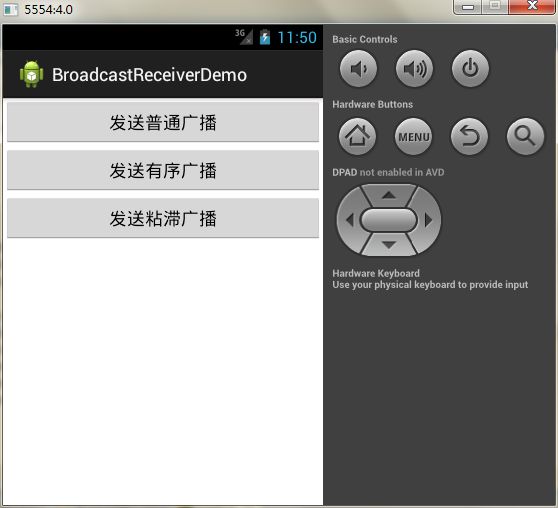- android——Livedata、StateFlow、ShareFlow和Channel的介绍和使用
wy313622821
kotlin-javaandroid
目录一、LiveData介绍二、StateFlow介绍三、ShareFlow介绍四、Channel介绍小结一、LiveData介绍LiveData是一种在Android开发中用于观察数据变化的组件。它可以被观察者注册并在数据变化时通知观察者,从而实现数据的实时更新。LiveData具有生命周期感知能力,它会自动管理观察者的生命周期,确保观察者只会在活动状态下接收数据更新。示例代码classMyVi
- Android开发实战班 - 应用架构 - LiveData/Flow 数据流
老码小张
Android开发实战班android架构
在MVVM架构中,数据流是连接ViewModel和View的重要桥梁,用于实现数据的观察和响应。Jetpack提供了两种主要的数据流机制:LiveData和Flow。本章节将深入讲解LiveData和Flow的概念、使用方法、区别以及在实际开发中的应用场景,帮助学员掌握数据流的应用。数据流概述数据流的作用:数据流用于在ViewModel和View之间传递数据,实现数据的观察和响应。数据流可以感知生
- PyTorch模型安卓部署流程(NCNN)全流程实战(2)代码详细解析
咕咕学不会咋办
pytorchandroidpython
代码来源PyTorch模型安卓部署流程(NCNN)全流程实战(1)至于为什么要备注,因为我基础不好,就得一点一点来适合和我一样的慢羊羊学习项目整体结构1.布局文件不解析了比较简单最简单的线性布局main.xml2.资源文件string.xmlsqueezencnn在Android开发中,资源文件(通常以.xml结尾)用于定义静态内容,如字符串、颜色、尺寸等。res/values/strings.x
- Android开发兼容性问题3万字保姆级教程(Android版本、屏幕、多语言、硬件、第三方库、权限)
大模型大数据攻城狮
androidandroid面试安卓面试android兼容性android多版本分辨率兼容androidUI
目录第一章Android版本兼容性1.1版本众多的挑战1.2设置版本参数1.3API版本检测1.4兼容性实例使用minSdkVersion和targetSdkVersion1.5版本更新的应对策略第二章屏幕尺寸与分辨率兼容性2.1屏幕尺寸的多样性2.2响应式布局2.3drawable资源管理使用尺寸单位2.4屏幕尺寸实例2.4.1实例背景2.4.2UI布局适配2.4.3图片资源适配2.4.4实例效
- Android开发奇葩bug:布局宽高不自动自适应了
893151960
androidbugAndroid开发布局自适应宽高失效Android布局有问题Android自适应宽高失效
Android开发奇葩bug:布局宽高不自动自适应了写着写着约束布局ConstraintLayout的子控件一初始化过宽高后,后面就算你内容再多,高已经变了,但是它没生效。不管怎么检查代码够感觉没错。奇怪了差点我界面就打算重写了。解决方案:把有问题的布局部分抠出来,放在FrameLayout层内,不要在ConstraintLayout里面了。不知道你看没看懂,反正就尝试抠有问题的布局出来。
- Qt——Qt控件之输入窗口-QTextEdit文本编辑框控件的使用总结(例程:文本编辑输入)
Winter_world
QT开发实战qt开发语言QTextEdit控件Qt文本编辑控件的使用
【系列专栏】:博主结合工作实践输出的,解决实际问题的专栏,朋友们看过来!《项目案例分享》《极客DIY开源分享》《嵌入式通用开发实战》《C++语言开发基础总结》《从0到1学习嵌入式Linux开发》《QT开发实战》《Android开发实战》《实用硬件方案设计》《结构建模设计》《数据库开发总结》《JAVA入门基础》《JavaWeb开发实战》长期持续带来更多案例与技术文章分享;欢迎商业项目咨询,10年+软
- android开发:web页面唤起其他应用app
士心山
Androidwebviewandroidwebview网页唤醒app
如何在webview加载的网页,唤醒其他应用app?具体步骤:第一步:打开AndroidMenifest.xml文件,添加下面代码关键代码:第二步:创建html文件,测试启动应用程序格式:启动应用程序各个项目含义如下所示:scheme:判别启动的App。host:适当记述path:传值时必须的key※没有也可以query:获取值的Key和Value※没有也可以参考网站详解如何通过H5(浏览器/We
- [Android开发] 工具篇--Docker使用
z4a1c2
Android开发实战docker
Docker介绍Docker是一种容器工具,是一种轻量化的虚拟技术,可以支持高效便捷地创建和使用Linux容器,同时可以让开发者以便捷方式打包应用到一个可移植的容器中,然后安装至任何运行Linux或Windows等系统的服务器上。官网:https://www.docker.com/Docker基本概念Docker中有非常重要的三个基本概念:镜像(Image)、容器(Container)和仓库(Re
- android开发适配深色模式,手机不支持深色模式,如何用软件解决深色模式的问题?(附有系统全局深色模式实现方法...
weixin_39755853
android开发适配深色模式
本帖最后由巷子口的你于2020-8-807:57编辑1.92允许通过设置为助手应用来饮捷切频深色模式(设置入口一般为系统默认应用-助手和语音输人,MIU需要设置为语音助手)提醒:稳定模式一股不用开启,OPPO等设备开启深色模式后自动关团的才需要开启,据反馈,部分OPPO设备在锁屏后还是会自动关团深色模式,这个哲时无解。稳定模式下,可点击刷新米使本App界面眼随系统深色模式1.94增加用前须知,尽可
- Android开发欧酷天气
2401_89224638
android
3、关于网页请求写了sendOkHttpRequest方法对网页发送请求publicstaticvoidsendOkHttpRequest(Stringaddress,okhttp3.Callbackcallback){OkHttpClientclient=newOkHttpClient();Requestrequest=newRequest.Builder().url(address).buil
- 首次开机android.intent.action.BOOT_COMPLETED开机广播发送慢的问题
IT生活课堂
android
1.背景做过android开发的同学相信一定做个这种逻辑:app接收BOOT_COMPLETED开机广播,自启动,或者收到广播做一些事情。目前在我们的项目上遇到首次开机,BOOT_COMPLETED开机广播发送慢的问题。接下来分享记录下如何定位这类问题。2.分析过程01-0108:00:33.68924710141840Iwm_create_activity:[0,42774215,7,com.a
- RK3568平台开发系列:Linux性能调试工具汇总与Android
技术猎手
linuxandroid服务器Android
RK3568平台开发系列:Linux性能调试工具汇总与Android在RK3568平台的开发过程中,对于Linux性能调试工具的了解和掌握是非常重要的。本文将介绍一些常用的Linux性能调试工具以及在Android开发中的应用。top命令top命令可以实时地显示系统中各个进程的资源占用情况,包括CPU使用率、内存使用率等。通过top命令,可以快速了解系统当前的负载情况和各个进程的资源消耗情况。$t
- Kotlin与Java的互操作性如何实现?
DoloresBerna
javakotlin开发语言
Kotlin是一种静态类型编程语言,可在Java虚拟机上运行,并且可以被编译成JavaScript源代码或使用LLVM编译器基础架构。作为一门与Java兼容的语言,Kotlin旨在解决Android开发中的一些问题,并且被设计成一门兼容Java的语言,可以与Java代码进行交互操作。本文将详细探讨Kotlin与Java的互操作性如何实现。一、Kotlin与Java的兼容性Kotlin的设计初衷之一
- android 框架组件,Android 架构组件介绍
臀总
android框架组件
Android架构组件介绍Android,Architecture,Components,架构2018.08.08我们在Android开发的过程中,总是在和一些问题纠缠,比如在生命周期的管理,在屏幕旋转的时候重新布局,绘制,保存还原数据等。我们也一直在致力于减少内存的占用,减少内存泄漏的风险,优化我们的代码,特别在大项目中,要增加代码的可维护性。AndroidArchitectureCompone
- Android系统架构与四大组件
Tyssen
Android开发系列教程android开发系统架构
本篇博文主要讲解Android的系统架构。对于Android开发者来说,有必要了解一下Android应用程序是如何运行的。Android是一个移动操作系统,它大致分为四层,即Linux内核层,库和运行时,Framework层和应用层。Android的体系架构鼓励系统组件重用,共享组件数据,并且定义组件的访问控制权限。可以说,这些层次结构即是相互独立,又是相互关联的。一Android系统架构1.Li
- android开发--简易登录注册界面及逻辑设计
不会飞的fish。。
笔记
登录注册界面与逻辑设计1.第一步新建文件(相信各位码农一定会这一步)略。。。2.第二步登录注册界面设计登录界面主要包括几大控件,如登录、注册按钮,账号(Button)、密码输入框(Editext)、复选框等。可以利用shape参数对控件进行美化。界面设计可以线性布局嵌套使用,这样可以很好的对控件调整,美化界面。注册界面主要包括EdiText、Radiobutton、button、checkbox等
- gradle设置build执行命令_Android开发Gradle高级技巧、自定义Gradle Task、打包完成自动签名、执行Shell脚本...
一张卷纸
先说下为什么有这篇文章吧,最近在写一个应用需要进行系统签名;每次我都需要先将apk生成然后使用sign.jar和系统证书进行签名,非常的麻烦而且tmd还是搞两个系统也就是每次都需要用两个系统证书分别进行签名…一:每次我都需要两个不同的设备的安装包,所以我使用多渠道打包这样每次进行打包都会给我生成两个apk。如下代码:app.gradle,这里需要注意的是多渠道打包,需要指定一个flavorDime
- 深入理解 Android 混淆规则
nukix
androidandroid
在Android开发中,混淆(Obfuscation)是一种保护代码安全的重要手段,通常通过ProGuard或R8工具来实现。本文将详细介绍Android混淆规则的基本原理、配置方法以及最佳实践,帮助开发者更好地保护应用代码。博主博客https://blog.uso6.comhttps://blog.csdn.net/dxk539687357什么是混淆?混淆是一种通过对代码进行重命名、删除无用代码
- 解决华为手机Android系统10.0不能隐藏桌面图标问题,全网唯一
校长团
Android技术android安卓华为app
在Android系统10.0之后对应用隐藏图标做了严格的限制,Android官网的意思就是,除非是系统应用或者是不含Android四大组件并且没有申请任何权限的app才能隐藏图标。内心一阵独白:这特么的还不如直接说不让隐藏图标!作为Android开发人的我们,能答应么,绝bi不能答应,找办法,全网的搜,大部分都是一个解决方法,就是将图标想方设法弄成全透明的,这个办法有风险不说,实质并未隐藏,在桌面
- Android开发笔记: 5种对话框案例
程序猿的杂货店
Android开发笔记android开发笔记PopupWindowAlertDialogProgressDialog
5种android对话框1弹出普通对话框---系统更新2自定义对话框--用户登录3时间选择对话框--时间对话框4进度条对话框--信息加载..5popuWindow对话框下载地址:http://download.csdn.net/download/taoerit/99651421弹出普通对话框---系统更新//弹出普通对话框publicvoidshowNormalDialog(Viewv){Aler
- Android Studio 安装具体步骤(配图)
2401_89760349
androidstudioandroidide
工欲善其事,必先利其器。面对开发者诟病的开发效率低、碎片化日益严重的问题,从开发工具上着手似乎是最佳的选择了。5月16日凌晨,谷歌2013年I/O开发者大会在美国加州旧金山芳草地艺术中心开幕。大会上,AndroidStudio这款开发工具被首次公布,这也是为了方便开发者基于Android开发。当谷歌高管喊出AndroidStudio能让应用开发更简单,支持实时渲染时,现场一片欢呼。显然,这才是开发
- 鸿蒙开发:文本合成语音
前言Android开发的同学都知道,在Android当中,实现一段文字合成语音播放,可以使用系统提供的对象TextToSpeech来很快的实现,如果不用系统自带的,也可以使用三方提供的,比如讯飞的语音合成等等,总之,实现起来多种多样,那么,在鸿蒙当中,如何实现根据指定的文本进行合成语音合成播放呢,其实也是非常的简单,因为鸿蒙当中也有textToSpeech。实现步骤第一步:创建引擎得到文本转语音类
- android 用户空间切换流程
踏雪羽翼
android
在Android开发中,创建和切换用户是一个重要的功能,特别是在需要多用户支持的应用中,下面讲述一下用户切换的流程。一、CarUserManager.java准备创建新用户,可以减少真正创建用户的时间@RequiresPermission(anyOf={Manifest.permission.MANAGE_USERS,Manifest.permission.CREATE_USERS})public
- Android网络技术——HttpUrlConnection和OkHttp
penghc_xhs
Android第一行代码android
Android网络技术——HttpUrlConnection和OkHttpHttpURLConnection是一个abstract类,可用于发起网络请求OkHttp不仅在接口封装上做得简单易用,就连在底层实现上也是自成一派,比起原生的HttpURLConnection,可以说是有过之而无不及,现在已经成了广大Android开发者首选的网络通信库一、布局设置注:ScrollView容器用于滚动内部的
- Android使用广播时出现异常:java.lang.InstantiationException: class has no zero argument constructor
zhongjianblackberry
Androidandroid异常解决方案
Android开发中使用广播时遇到如下问题:java.lang.InstantiationException:classhasnozeroargumentconstructor解决方案:1,如果是静态广播注册方式、广播作为内部类来使用:广播内部类声明为static类型。2,如果是非静态广播注册方式:广播必须在类中注册(调用registerReceiver()方法)、注销(调用unregisterR
- Kotlin Android 环境搭建
lsx202406
开发语言
KotlinAndroid环境搭建引言随着移动应用的日益普及,Android开发成为了一个热门的技术领域。Kotlin作为一种现代的编程语言,因其简洁、安全、互操作性强等特点,被越来越多的开发者所喜爱。本文将详细介绍KotlinAndroid环境搭建的步骤,帮助您快速上手KotlinAndroid开发。环境搭建步骤1.安装JDKKotlin是基于JVM的编程语言,因此需要安装Java开发工具包(J
- Android开发笔记-License for package Android SDK Platform 28 not accepted
ljt2724960661
Android基础
开发项目时,碰到持续集成工具CircleCI上报了一个AndroidSDK异常,如下:>Configureproject:appuseNewCruncherhasbeendeprecated.Itwillberemovedinafutureversionofthegradleplugin.Newcruncherisnowalwaysenabled.useNewCruncherhasbeendepr
- Android开发:隐藏和显示底部导航栏
android157
Android基础知识android移动开发
描述:视频播放器实现全屏和小屏互相切换时,显示和隐藏底部导航栏的方法该例子设置的Activity是去除状态栏和标题栏,全屏显示布局和电量等信息。Manifest文件theme如下:true显示和隐藏底部导航栏的方法:/***控制底部导航栏,显示/隐藏虚拟按键**@paramisShowtrue:显示;false:隐藏*/privatevoidcontrolBottomNavigation(bool
- Android开发:实现底部导航栏切换功能
ZrilKwargs
androidgithub
在Android应用程序中,底部导航栏是一种常见的用户界面模式,它允许用户通过点击底部的标签来切换不同的功能模块或页面。在本文中,我们将使用TabLayout和Fragment来实现这种底部导航栏切换功能。首先,我们需要在布局文件中添加TabLayout和ViewPager组件。TabLayout用于显示底部的标签,ViewPager用于管理不同的Fragment页面。以下是一个示例布局文件的代码
- 2025年最新Android安卓学习路线(建议收藏[特殊字符])
l软件定制开发工作室
Android教程android学习
JavaJava是AndroidApp开发默认的语言,AndroidFramework也是默认使用Java语言,熟练掌握Java语言是Android开发者的必备技能。希望深入Java虚拟机的同学,也可以参考下面两本书:周志明的《深入理解Java虚拟机(第3版)》邓老师的《深入理解AndroidJava虚拟机ART》KotlinGoogle几年前就开始走“KotlinFirst”的路线,目前很多官方
- 解读Servlet原理篇二---GenericServlet与HttpServlet
周凡杨
javaHttpServlet源理GenericService源码
在上一篇《解读Servlet原理篇一》中提到,要实现javax.servlet.Servlet接口(即写自己的Servlet应用),你可以写一个继承自javax.servlet.GenericServletr的generic Servlet ,也可以写一个继承自java.servlet.http.HttpServlet的HTTP Servlet(这就是为什么我们自定义的Servlet通常是exte
- MySQL性能优化
bijian1013
数据库mysql
性能优化是通过某些有效的方法来提高MySQL的运行速度,减少占用的磁盘空间。性能优化包含很多方面,例如优化查询速度,优化更新速度和优化MySQL服务器等。本文介绍方法的主要有:
a.优化查询
b.优化数据库结构
- ThreadPool定时重试
dai_lm
javaThreadPoolthreadtimertimertask
项目需要当某事件触发时,执行http请求任务,失败时需要有重试机制,并根据失败次数的增加,重试间隔也相应增加,任务可能并发。
由于是耗时任务,首先考虑的就是用线程来实现,并且为了节约资源,因而选择线程池。
为了解决不定间隔的重试,选择Timer和TimerTask来完成
package threadpool;
public class ThreadPoolTest {
- Oracle 查看数据库的连接情况
周凡杨
sqloracle 连接
首先要说的是,不同版本数据库提供的系统表会有不同,你可以根据数据字典查看该版本数据库所提供的表。
select * from dict where table_name like '%SESSION%';
就可以查出一些表,然后根据这些表就可以获得会话信息
select sid,serial#,status,username,schemaname,osuser,terminal,ma
- 类的继承
朱辉辉33
java
类的继承可以提高代码的重用行,减少冗余代码;还能提高代码的扩展性。Java继承的关键字是extends
格式:public class 类名(子类)extends 类名(父类){ }
子类可以继承到父类所有的属性和普通方法,但不能继承构造方法。且子类可以直接使用父类的public和
protected属性,但要使用private属性仍需通过调用。
子类的方法可以重写,但必须和父类的返回值类
- android 悬浮窗特效
肆无忌惮_
android
最近在开发项目的时候需要做一个悬浮层的动画,类似于支付宝掉钱动画。但是区别在于,需求是浮出一个窗口,之后边缩放边位移至屏幕右下角标签处。效果图如下:
一开始考虑用自定义View来做。后来发现开线程让其移动很卡,ListView+动画也没法精确定位到目标点。
后来想利用Dialog的dismiss动画来完成。
自定义一个Dialog后,在styl
- hadoop伪分布式搭建
林鹤霄
hadoop
要修改4个文件 1: vim hadoop-env.sh 第九行 2: vim core-site.xml <configuration> &n
- gdb调试命令
aigo
gdb
原文:http://blog.csdn.net/hanchaoman/article/details/5517362
一、GDB常用命令简介
r run 运行.程序还没有运行前使用 c cuntinue
- Socket编程的HelloWorld实例
alleni123
socket
public class Client
{
public static void main(String[] args)
{
Client c=new Client();
c.receiveMessage();
}
public void receiveMessage(){
Socket s=null;
BufferedRea
- 线程同步和异步
百合不是茶
线程同步异步
多线程和同步 : 如进程、线程同步,可理解为进程或线程A和B一块配合,A执行到一定程度时要依靠B的某个结果,于是停下来,示意B运行;B依言执行,再将结果给A;A再继续操作。 所谓同步,就是在发出一个功能调用时,在没有得到结果之前,该调用就不返回,同时其它线程也不能调用这个方法
多线程和异步:多线程可以做不同的事情,涉及到线程通知
&
- JSP中文乱码分析
bijian1013
javajsp中文乱码
在JSP的开发过程中,经常出现中文乱码的问题。
首先了解一下Java中文问题的由来:
Java的内核和class文件是基于unicode的,这使Java程序具有良好的跨平台性,但也带来了一些中文乱码问题的麻烦。原因主要有两方面,
- js实现页面跳转重定向的几种方式
bijian1013
JavaScript重定向
js实现页面跳转重定向有如下几种方式:
一.window.location.href
<script language="javascript"type="text/javascript">
window.location.href="http://www.baidu.c
- 【Struts2三】Struts2 Action转发类型
bit1129
struts2
在【Struts2一】 Struts Hello World http://bit1129.iteye.com/blog/2109365中配置了一个简单的Action,配置如下
<!DOCTYPE struts PUBLIC
"-//Apache Software Foundation//DTD Struts Configurat
- 【HBase十一】Java API操作HBase
bit1129
hbase
Admin类的主要方法注释:
1. 创建表
/**
* Creates a new table. Synchronous operation.
*
* @param desc table descriptor for table
* @throws IllegalArgumentException if the table name is res
- nginx gzip
ronin47
nginx gzip
Nginx GZip 压缩
Nginx GZip 模块文档详见:http://wiki.nginx.org/HttpGzipModule
常用配置片段如下:
gzip on; gzip_comp_level 2; # 压缩比例,比例越大,压缩时间越长。默认是1 gzip_types text/css text/javascript; # 哪些文件可以被压缩 gzip_disable &q
- java-7.微软亚院之编程判断俩个链表是否相交 给出俩个单向链表的头指针,比如 h1 , h2 ,判断这俩个链表是否相交
bylijinnan
java
public class LinkListTest {
/**
* we deal with two main missions:
*
* A.
* 1.we create two joined-List(both have no loop)
* 2.whether list1 and list2 join
* 3.print the join
- Spring源码学习-JdbcTemplate batchUpdate批量操作
bylijinnan
javaspring
Spring JdbcTemplate的batch操作最后还是利用了JDBC提供的方法,Spring只是做了一下改造和封装
JDBC的batch操作:
String sql = "INSERT INTO CUSTOMER " +
"(CUST_ID, NAME, AGE) VALUES (?, ?, ?)";
- [JWFD开源工作流]大规模拓扑矩阵存储结构最新进展
comsci
工作流
生成和创建类已经完成,构造一个100万个元素的矩阵模型,存储空间只有11M大,请大家参考我在博客园上面的文档"构造下一代工作流存储结构的尝试",更加相信的设计和代码将陆续推出.........
竞争对手的能力也很强.......,我相信..你们一定能够先于我们推出大规模拓扑扫描和分析系统的....
- base64编码和url编码
cuityang
base64url
import java.io.BufferedReader;
import java.io.IOException;
import java.io.InputStreamReader;
import java.io.PrintWriter;
import java.io.StringWriter;
import java.io.UnsupportedEncodingException;
- web应用集群Session保持
dalan_123
session
关于使用 memcached 或redis 存储 session ,以及使用 terracotta 服务器共享。建议使用 redis,不仅仅因为它可以将缓存的内容持久化,还因为它支持的单个对象比较大,而且数据类型丰富,不只是缓存 session,还可以做其他用途,一举几得啊。1、使用 filter 方法存储这种方法比较推荐,因为它的服务器使用范围比较多,不仅限于tomcat ,而且实现的原理比较简
- Yii 框架里数据库操作详解-[增加、查询、更新、删除的方法 'AR模式']
dcj3sjt126com
数据库
public function getMinLimit () { $sql = "..."; $result = yii::app()->db->createCo
- solr StatsComponent(聚合统计)
eksliang
solr聚合查询solr stats
StatsComponent
转载请出自出处:http://eksliang.iteye.com/blog/2169134
http://eksliang.iteye.com/ 一、概述
Solr可以利用StatsComponent 实现数据库的聚合统计查询,也就是min、max、avg、count、sum的功能
二、参数
- 百度一道面试题
greemranqq
位运算百度面试寻找奇数算法bitmap 算法
那天看朋友提了一个百度面试的题目:怎么找出{1,1,2,3,3,4,4,4,5,5,5,5} 找出出现次数为奇数的数字.
我这里复制的是原话,当然顺序是不一定的,很多拿到题目第一反应就是用map,当然可以解决,但是效率不高。
还有人觉得应该用算法xxx,我是没想到用啥算法好...!
还有觉得应该先排序...
还有觉
- Spring之在开发中使用SpringJDBC
ihuning
spring
在实际开发中使用SpringJDBC有两种方式:
1. 在Dao中添加属性JdbcTemplate并用Spring注入;
JdbcTemplate类被设计成为线程安全的,所以可以在IOC 容器中声明它的单个实例,并将这个实例注入到所有的 DAO 实例中。JdbcTemplate也利用了Java 1.5 的特定(自动装箱,泛型,可变长度
- JSON API 1.0 核心开发者自述 | 你所不知道的那些技术细节
justjavac
json
2013年5月,Yehuda Katz 完成了JSON API(英文,中文) 技术规范的初稿。事情就发生在 RailsConf 之后,在那次会议上他和 Steve Klabnik 就 JSON 雏形的技术细节相聊甚欢。在沟通单一 Rails 服务器库—— ActiveModel::Serializers 和单一 JavaScript 客户端库——&
- 网站项目建设流程概述
macroli
工作
一.概念
网站项目管理就是根据特定的规范、在预算范围内、按时完成的网站开发任务。
二.需求分析
项目立项
我们接到客户的业务咨询,经过双方不断的接洽和了解,并通过基本的可行性讨论够,初步达成制作协议,这时就需要将项目立项。较好的做法是成立一个专门的项目小组,小组成员包括:项目经理,网页设计,程序员,测试员,编辑/文档等必须人员。项目实行项目经理制。
客户的需求说明书
第一步是需
- AngularJs 三目运算 表达式判断
qiaolevip
每天进步一点点学习永无止境众观千象AngularJS
事件回顾:由于需要修改同一个模板,里面包含2个不同的内容,第一个里面使用的时间差和第二个里面名称不一样,其他过滤器,内容都大同小异。希望杜绝If这样比较傻的来判断if-show or not,继续追究其源码。
var b = "{{",
a = "}}";
this.startSymbol = function(a) {
- Spark算子:统计RDD分区中的元素及数量
superlxw1234
sparkspark算子Spark RDD分区元素
关键字:Spark算子、Spark RDD分区、Spark RDD分区元素数量
Spark RDD是被分区的,在生成RDD时候,一般可以指定分区的数量,如果不指定分区数量,当RDD从集合创建时候,则默认为该程序所分配到的资源的CPU核数,如果是从HDFS文件创建,默认为文件的Block数。
可以利用RDD的mapPartitionsWithInd
- Spring 3.2.x将于2016年12月31日停止支持
wiselyman
Spring 3
Spring 团队公布在2016年12月31日停止对Spring Framework 3.2.x(包含tomcat 6.x)的支持。在此之前spring团队将持续发布3.2.x的维护版本。
请大家及时准备及时升级到Spring
- fis纯前端解决方案fis-pure
zccst
JavaScript
作者:zccst
FIS通过插件扩展可以完美的支持模块化的前端开发方案,我们通过FIS的二次封装能力,封装了一个功能完备的纯前端模块化方案pure。
1,fis-pure的安装
$ fis install -g fis-pure
$ pure -v
0.1.4
2,下载demo到本地
git clone https://github.com/hefangshi/f



